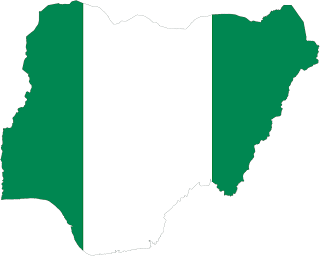Nigeria in a fast moving world by Lekan Fatodu
The world is visibly on a superhighway. A closer look at the happenings in the world out there will reveal amazing developments that point to this fact.
The growing attention and investment in modern infrastructure and technology as a means to address socio-economic constraints, especially by some African countries like South Africa and Kenya, are good examples of how visionary nations are taking sensible routes in the race towards progress.
Some days ago, the first ever direct freight train from China arrived London, UK, – the result of a collaborative effort between both countries. Expectedly, that audacious move has attracted attention around the world.
“The East Wind service departed Yiwu City in China’s Zhejiang Province on 3 January and crossed ten countries on its 7,456-mile trip, before pulling into Barking Rail Terminal in East London, Wednesday afternoon.
“It crossed China, Kazakhstan, Russia, Belarus, Poland, Germany, Belgium and France before finally reaching Britain.
“The train, which is operated by Yiwu Timex Industrial Investments, arrived carrying 34 containers packed with £4 million worth of clothes and other goods and was greeted by a group of officials and local residents,” according to a British national daily.
The journey, and the feat have largely been termed epic. And, truly, I couldn’t find a better way to explain the accomplishment.
Expectedly, this has reinforced the thought on how already developed countries are still not relenting in accessing new frontiers. And, how, conversely, developing ones keep rotting in their backwardness.
As spectators watching other countries make these giant strides, one cannot but wonder if Nigeria is indeed ready to compete in a world that is now moving seemingly at the speed of light in every facet of life.
The issue of financial inclusion, which is intended to be largely enabled by Mobile Money technology, as desired by the Nigerian government is a good testimony to how much we are still struggling to make any meaningful progress.
According to reports, Nigeria has 130 million active mobile users, a very significant figure that is far sufficient to position the nation as a reference point in the successful utilisation of mobile money to drive financial inclusion, and make more money available in the country’s banks to stimulate growth. But that has, unfortunately, not been the case.
Even with the impressive number of mobile users, Nigeria has only 1 per cent penetration, compared to Kenya’s mobile money penetration of 60 per cent out of the country’s 29 million users.
And this is where the problem lies according to the Executive Vice Chairman/CEO of the Nigerian Communications Commission, Prof. Umar Garba Danbatta.
“The mobile money service penetration is just 1 per cent, whereas Kenya has a mobile money service penetration of close to 60 per cent. The mobile money service in Kenya is driven by telecommunications operators and not financial sector driven, like in the case of Nigeria. But the irony of it all is that the financial sector, which currently drives mobile money penetration in Nigeria, leverage on the telecoms sector to drive the initiative, which was introduced by the Central Bank of Nigeria in 2012.”
As always, the sheer dissonance between government’s policies and the process of implementation in Nigeria is a major contributor to the lack of inclusive growth as we can see in this case.
The Central Bank of Nigeria (CBN), the regulator and the chief campaigner for financial inclusion, is siding with the banks, to put it clearly, in running the mobile money service instead of allowing the Mobile Money Operators (MMOs) to be in charge of the operations, a model that has proven to be profitable as demonstrated by Kenya.
You may have heard some Nigerians use the term “policy summersault” to explain obvious oddity in the nation’s policy decision and drive. And if you are still looking for a vivid example of policy summersault; the case of the CBN and MMOs on the mobile money service is indeed a classic one.
In addition to our laxity in handling even the simplest of issues, we are also bedeviled by the propensity to celebrate the tiniest of achievements with fanfare in preposterous dimensions.
As remarkable as the first freight train from China to the UK was, no lavish or lousy ceremony was put together by the governments of China and Britain to launch the commencement of the new trade route. Only a few bureaucrats and corporate leaders, obviously standing for the two countries, witnessed the train’s arrival in London. The British Prime Minister and her Chinese counterpart were both absent. And that was for a first-of-a-kind rail line that cuts across ten countries.
But when Nigeria launched the Abuja-Kaduna standard-gauge railway line, an interstate route, last year, not only was it marked with fanfare in the presence of many government officials including President Muhammadu Buhari, it was also the subject of a fierce debate as to which administration deserved credit for the project. While the supporters of the immediate past government stated that the Jonathan administration actually initiated and started the project, those on the side of the present government also argued that President Buhari’s administration that completed the work should take the shine.
These are obvious irrelevancies that are blurring our vision for greatness. You will expect that the challenges of inadequate coaches, over-crowding and slow-operations amongst other hitches faced by the newly launched Abuja-Kaduna train service will be a major priority as it obtains in saner climes.
But we don’t reason that way. Little wonder we remain thousands of miles behind many other countries of the world.


Comments
Post a Comment